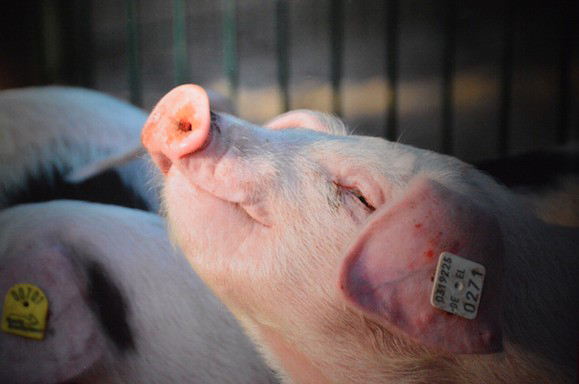Animal welfare gets a boost from SA partnership

Animal welfare policy has had a big boost to its evidence base, with two South Australian research partners joining the Animal Welfare Science Centre (AWSC) to make it one of the world’s largest animal welfare focused research groups.
The Centre’s expertise in sustainable livestock production has been enhanced with the South Australian Research and Development Institute (SARDI) and the University of Adelaide joining existing AWSC partners the University of Melbourne, the Department of Economic Development, Jobs, Transport and Resources and Ohio State University.
The AWSC is one of the world's major players when it comes to animal welfare science and aims to improve standards across government, industry, community and academic sectors.
The collaboration is set to add new depth to the AWSC's scientific resources and research infrastructure, particularly in the key areas of animal behaviour and stress physiology.
The Centre’s partner organisations will build on existing strong collaborations to deliver high quality, relevant research outcomes across the livestock, companion animal and zoo animal sectors.
AWSC Co-Director and University of Melbourne researcher Paul Hemsworth said the South Australian partners were a "great fit" for the organisation.
“The South Australian partners bring key scientific expertise together to greatly enhance the centre’s research capability across all sectors,” Professor Hemsworth said.
DEDJTR Executive Director of Agriculture Research and Development Greg Harper, the current chairman of the AWSC, said awareness of animal welfare is growing in society, “so the need for broad research and education capabilities is also growing”.
“Rigorous research like that provided by the AWSC is vital if we’re to ensure animal welfare policies don’t just make us feel better about animal treatment, but genuinely benefit the animals we live and work with,” Dr Harper said.
“Expanding the Animal Welfare Science Centre to bring in key research from South Australia means the public and industry will now get world-class evidence-based advice on animal welfare issues.”
The Victoria-based partners will continue to research the effects of housing and husbandry on animal welfare, identify tools and benchmarks for welfare monitoring and build a better understanding of how community attitudes and behaviours affect animal welfare through changes in legislation, codes of practice and animal management.
The South Australian partnership means access to their extensive facilities at the University of Adelaide’s Roseworthy campus, which allow for intensive physiological, behavioural and large-scale on-farm research.